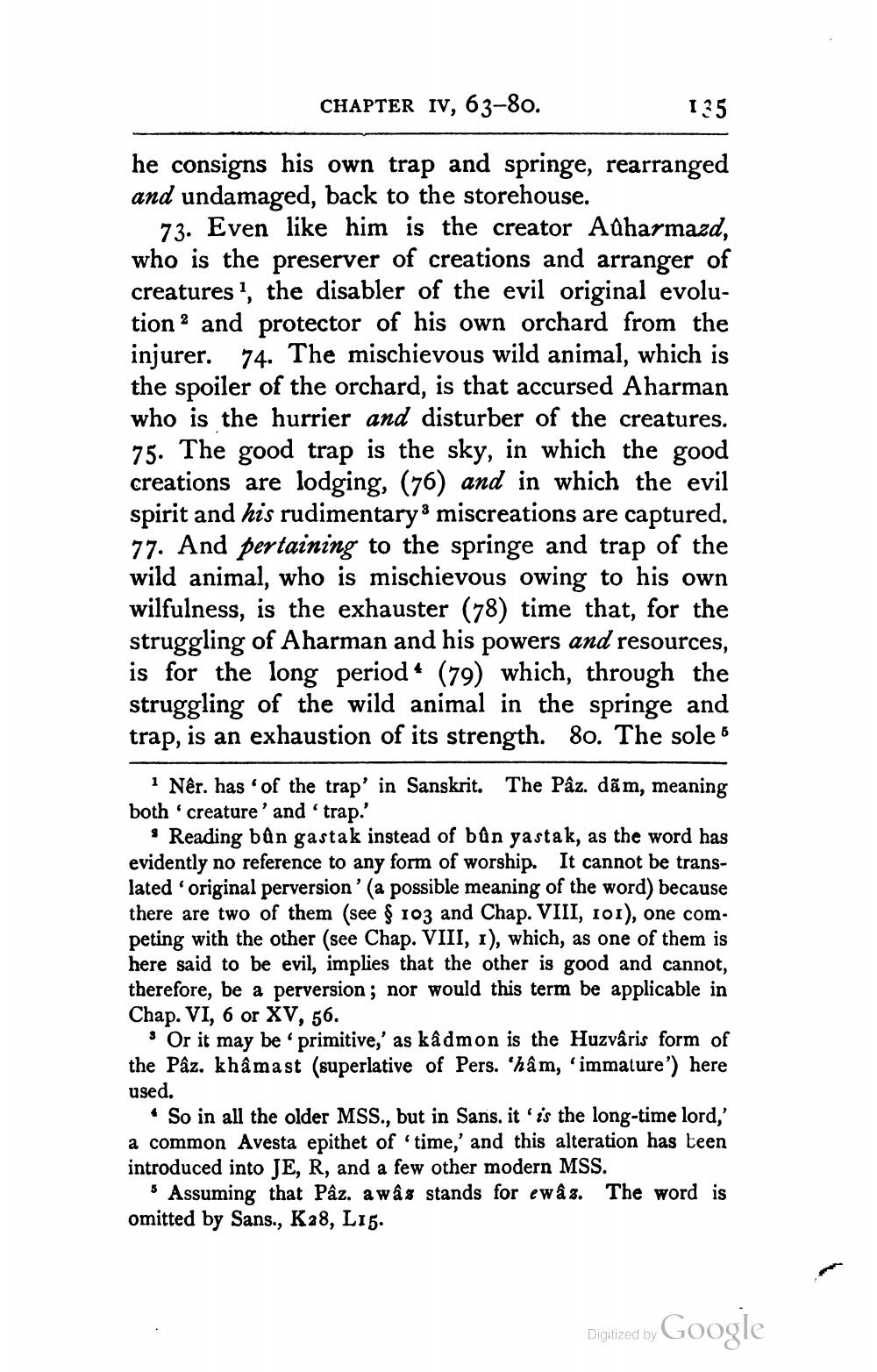________________
CHAPTER IV, 63-80.
135
he consigns his own trap and springe, rearranged and undamaged, back to the storehouse.
73. Even like him is the creator Adharmazd, who is the preserver of creations and arranger of creatures, the disabler of the evil original evolution and protector of his own orchard from the injurer. 74. The mischievous wild animal, which is the spoiler of the orchard, is that accursed Aharman who is the hurrier and disturber of the creatures. 75. The good trap is the sky, in which the good creations are lodging, (76) and in which the evil spirit and his rudimentary: miscreations are captured. 77. And pertaining to the springe and trap of the wild animal, who is mischievous owing to his own wilfulness, is the exhauster (78) time that, for the struggling of Aharman and his powers and resources, is for the long period + (79) which, through the struggling of the wild animal in the springe and trap, is an exhaustion of its strength. 80. The sole 6
? Nêr. has of the trap' in Sanskrit. The Pâz. dãm, meaning both creature' and 'trap.'
* Reading bûn gastak instead of bûn yastak, as the word has evidently no reference to any form of worship. It cannot be translated original perversion' (a possible meaning of the word) because there are two of them (see § 103 and Chap. VIII, 101), one competing with the other (see Chap. VIII, 1), which, as one of them is here said to be evil, implies that the other is good and cannot, therefore, be a perversion; nor would this term be applicable in Chap. VI, 6 or XV, 56.
• Or it may be primitive,' as kadmon is the Huzvāris form of the Pâz. khâmast (superlative of Pers. 'hâm, 'immature') here used.
So in all the older MSS., but in Sans, it is the long-time lord.' a common Avesta epithet of time,' and this alteration has been introduced into JE, R, and a few other modern MSS.
5 Assuming that Pâz. awas stands for ewâu. The word is omitted by Sans., K28, L15.
Digitized by Google




